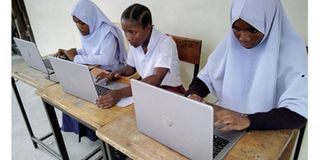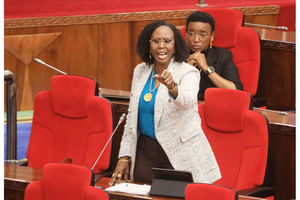Tanzania, Canada join forces to break gender barriers in skills education

What you need to know:
- The collaboration is being implemented through the Empowerment through Skills Program (ESP), a project led by the ministry of Education in partnership with Colleges and Institutes Canada (CiCan), and funded by the government of Canada
Arusha. Tanzania is partnering with Canada to eliminate gender-related barriers in skills education for girls, as part of wider efforts to expand women’s access to economic opportunities.
The collaboration is being implemented through the Empowerment through Skills Program (ESP), a project led by the ministry of Education in partnership with Colleges and Institutes Canada (CiCan), and funded by the government of Canada.
The initiative seeks to address structural obstacles that hinder girls and women from accessing and benefiting equally from technical and vocational education.
These include entrenched societal beliefs that favour men in skills-based training, domestic responsibilities, lack of resources, and learning environments that are not inclusive or gender-sensitive.
Speaking at a three-day stakeholders’ forum for the ESP project in Arusha, the Minister for Education, Science and Technology, Prof Adolf Mkenda, said the initiative aligns with the country’s 2024 Education and Training Policy, which promotes inclusive and equitable education for all.
“This project lays a strong foundation for real transformation in our communities. Our goal is to increase women’s participation in the economy through skills education so they can be self-reliant and contribute to national development,” Prof Mkenda said in a speech delivered on his behalf by Deputy Permanent Secretary, Dr Charles Mahera.
Valued at over Sh48.4 billion, the ESP project is being rolled out across 12 Folk Development Colleges (FDCs) and several community organisations. It targets marginalised groups, particularly girls who have missed out on formal education, by providing practical training aligned with local needs.
Head of Cooperation at the Canadian High Commission, Carol Mundle, said Canada’s experience in skills education has shaped the partnership with Tanzania.
She noted that both countries face similar challenges in ensuring equal opportunities for young people, especially girls.
“We believe skills are a powerful tool to help women and girls achieve their goals,” she said.
“One of the key outcomes of the programme has been the introduction of short courses tailored to community needs, along with gender and human rights training aimed at breaking down stereotypes.”
The Director of Technical Education at the Ministry, Dr Fredrick Salukele, said more than 9,700 teachers have been trained in modern teaching approaches under the programme.
In addition, ICT equipment worth Sh240 million has been distributed to selected FDCs to improve the learning environment.
One of the programme’s beneficiaries, Eliza Lazier, shared her story, saying a course in agricultural processing enabled her to start her own business.
She urged stakeholders to support graduates like her by helping them access reliable markets for their products.




